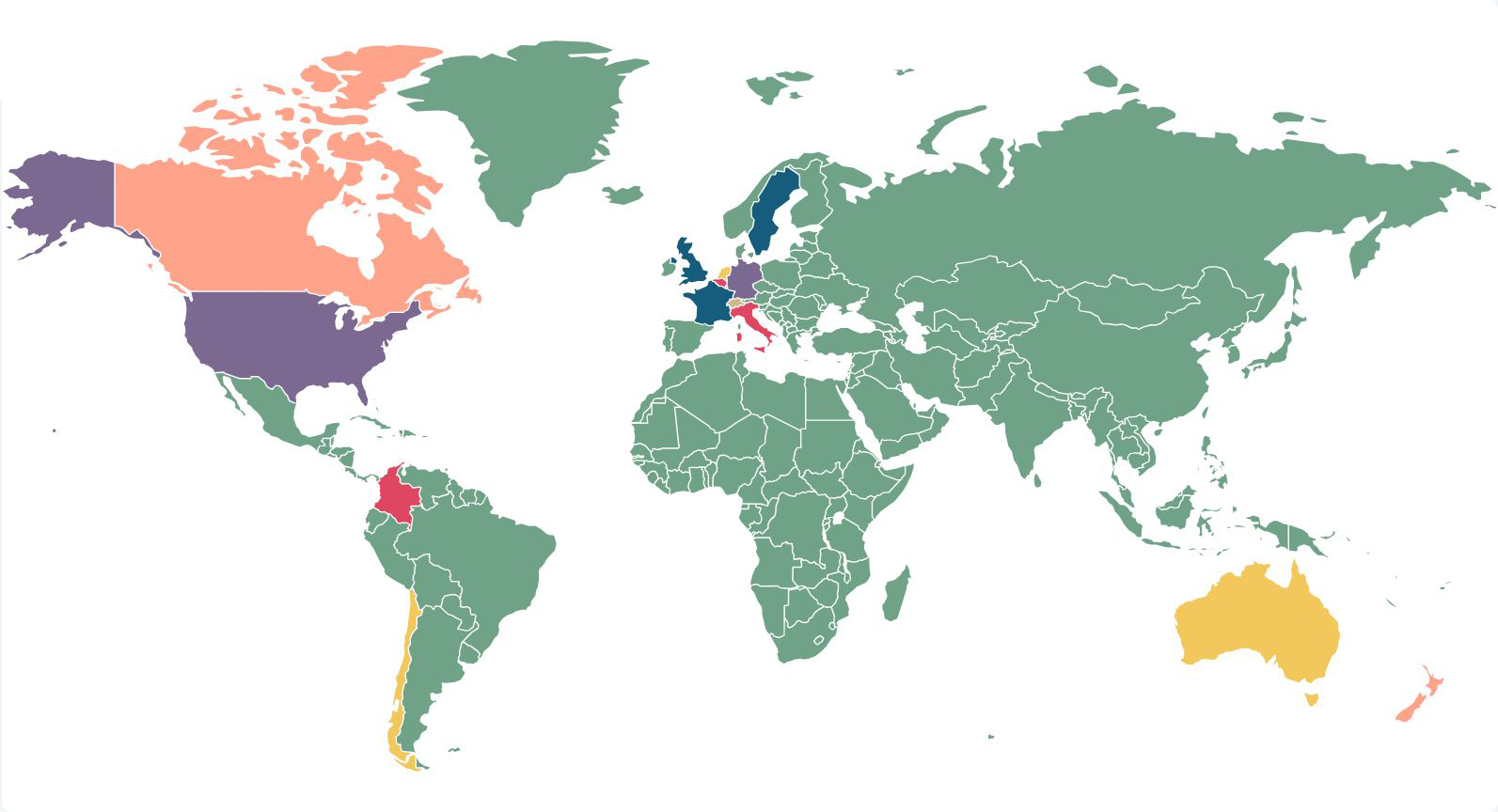
Directors and Officers will be under the spotlight due to rapidly increasing regulation
The regulatory sands are constantly shifting for Directors and Officers (D&O). The recent landscape has been particularly dynamic, with a myriad of new regulations increasing the level of responsibility placed on business leaders

Heat Rises on Climate Change Litigation Risk
The US space agency NASA says the nine years leading up to 2023 have been the hottest since records were first taken in 1880 but it is not just temperatures that are increasing. The number of climate change- related court cases has shot up over a similar period...

Sustainability through technology: managing the transition
As we transition into being a digital and more sustainable society, managing the move successfully will be a challenge in itself. There is an opportunity for the UK to become a centre of technological excellence and to create an environment that attracts, supports and retains the entrepreneurial start-ups that will become the drivers of the global economy in the years ahead.

Developments in climate change litigation: 2025 could herald an expansion in types of claim and remedies
To accompany the fourth edition of our interactive climate change litigation map, we take a deeper dive into the implications of the key decisions from the last six months and the new cases introduced for 2025.

The AI revolution: The pace of change accelerates
The AI revolution is underway. We are already living through an era of profound change that will be talked about for generations to come. Just as the 1780s are talked about as the start of the Industrial Revolution, so the 2020s will be seen as the dawn of the ‘AI Revolution’.

Regulators shift focus to conduct risk
Increasing government intervention and regulation of conduct risk are forcing insurers from all jurisdictions to change the products they sell and who they sell them to. Global and national regulators are still smarting from the battering they took in the wake of the financial crisis a decade ago. Many were accused of being asleep on the job, of having relaxed regulations too much and not spotting the looming problems across the world’s financial markets. Their response has been to review, revise, strengthen and extend regulation across all sectors. This includes the insurance industry, despite its many protestations that its severely depressed investment returns make it one of the victims of the financial crisis, not a cause of it.

The ESG "backlash": How to balance competing demands
Climate change and social issues have, for (at least) the last decade, occupied legislative, regulatory and shareholder thinking, with implications for corporate decision making around the globe. Over the last year, the consequences of ongoing economic challenges and geopolitical events have ushered in what has been called a "rollback" in ESG – a renewed and altered focus on policies intended to combat climate change and the pursuit of equity, diversity and inclusion (EDI). The implications of this backlash are pertinent to corporates across western economies, with the potential to impact corporate strategies, investment paths and engagement with stakeholders from shareholders to consumers.

Where is the UK's place in the future of the skies? The practical implications of a VTOL takeover
Vertical Take-Off and Landing aircraft (VTOL), and in particular electric-powered VTOL (eVTOL), have been described as a greener and cheaper mode of transportation that will revolutionise our skies. With a myriad of uses, they offer a level of convenience never before experienced by passengers.

Chapter 4: ESG: Creating Sustainable Value
The ESG agenda is one of the overarching corporate strategies of 2023, despite the wider economic and political uncertainty. Many firms talk about it but what does real commitment to an integrated ESG strategy look like? The key word is ‘integrated’.

Chapter 3: Unlocking the potential of ESG
Collaboration is the key to ensuring resilience in the face of today’s challenges and building a sustainable future. The insurance industry and the businesses that comprise its complex supply chain are key players in shaping and supporting the way commerce and society responds.

The Aftermath of Brexit: Adjustment, Adaptation and Acceptance
Insurance and financial services were conspicuous by their absence from the last-minute deal to seal the departure of the UK from the European Union (EU), signed as COVID-constrained festivities were about to commence on Christmas Eve last year.

The Drive for Automation
International moves towards automated vehicles pose a number of challenges, particularly on liability, data, cyber security and infrastructure. The drive towards automated vehicles is accelerating and concentrating minds around the globe on the associated legal, regulatory, technical and physical challenges. The end goal is for safe, fully automated vehicles and mobility solutions that can drive anywhere without the need for a driver. It is the journey there that is the real challenge.



